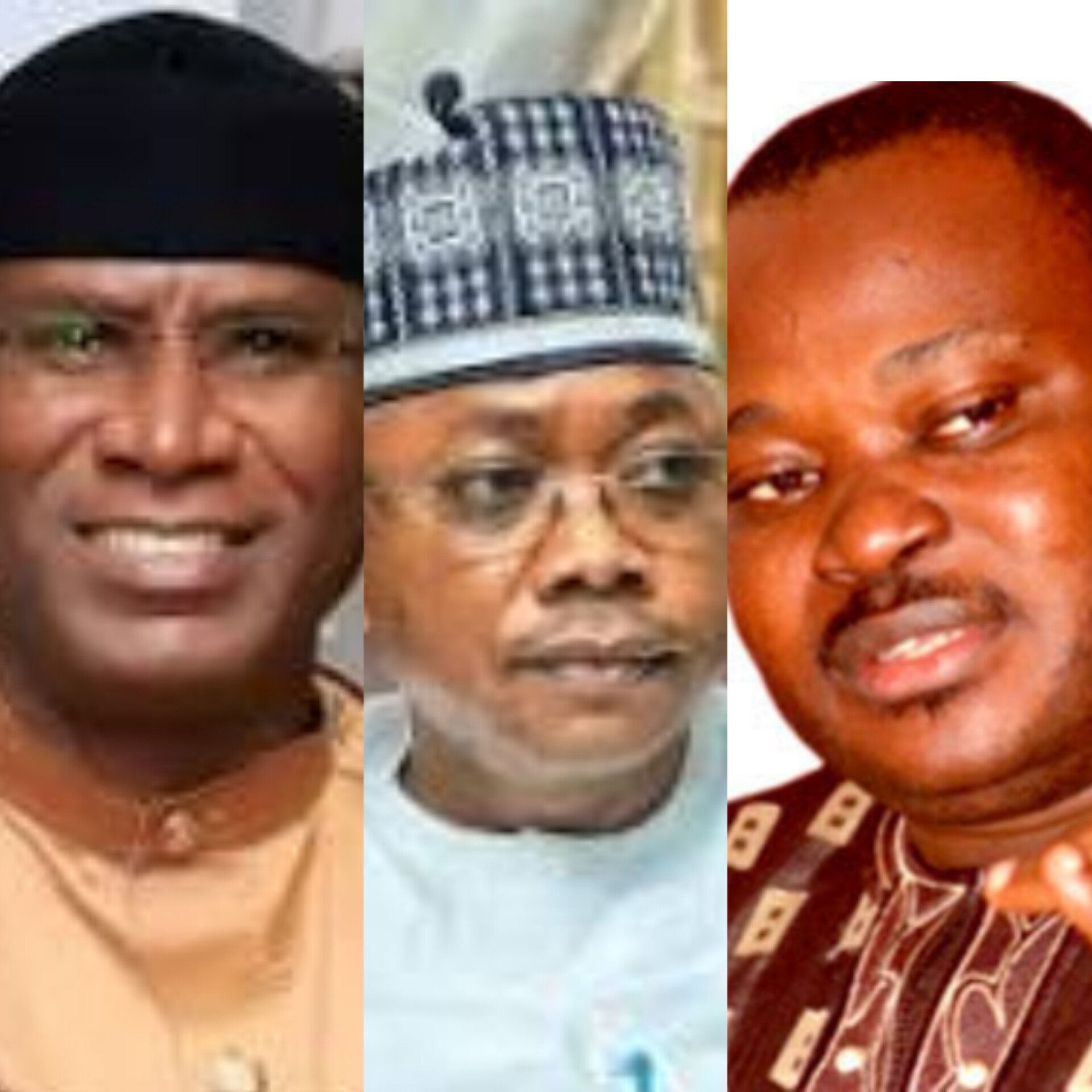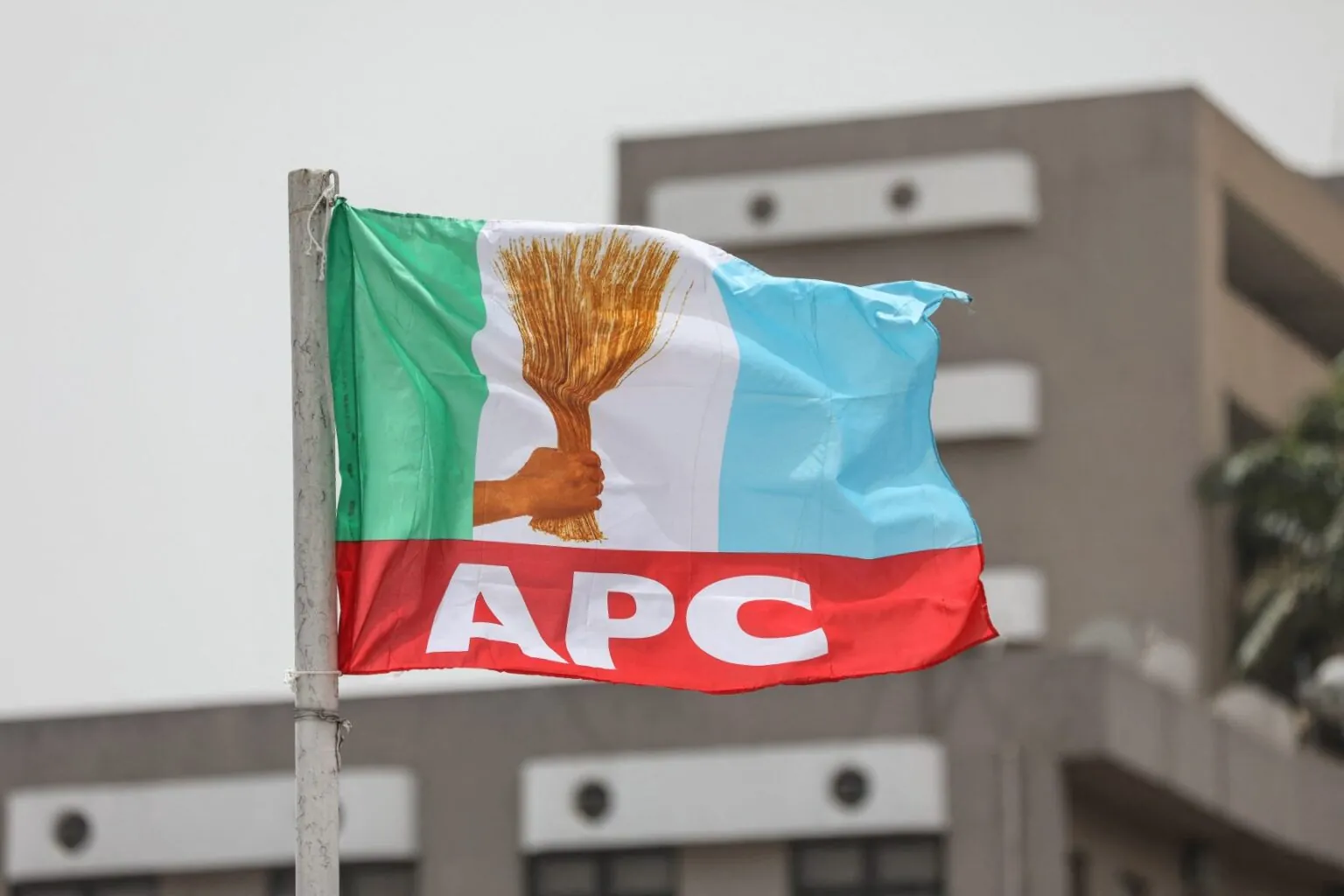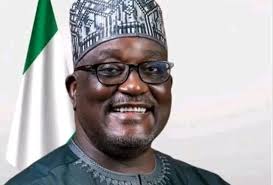***Demands outright cancelation, repeat primary
Apparently still dissatisfied with the conduct of the April 20 Ondo State governorship primaries of the All Progressives Congress (APC) for Ondo State, Senator Jimoh Ibrahim took his protest to the National Assembly in Abuja on Tuesday where he accused Governor Usman Ododo of Kogi State and Ovie Omo-Agege of complicity in the shoddy exercise
Ibrahim while speaking to the senate Press corps made fresh allegations against Governor Usman Ododo, and a former Deputy President of the Senate, Sen. Movie Omo-Agege, accusing them of changing the venue of the state collation centre abruptly without giving contestants prior notice.

Ododo and Omo-Agege were the chairman and secretary respectively of the election committee sent by the APC to conduct the primaries.
According to him, Ododo and Omo-Agege changed the date of collation of results midway to allow them perfect the electoral fraud in favour of the incumbent governor of Ondo State, Lucky Aiyedatiwa who had contested the primary election with them.
To buttress his point, Jimoh who was a contestant in the election pointed out a letter written by Ododo Ahmed Usman which was addressed to the Resident Electoral Commissioner in Akure purportedly changing the date of collation on the day of primary election.
Part of the letter which was sighted by our correspondent reads: “Please refer to our letters on the above stated subject matter, dated 5th April, 2024 with Ref. Number APC/NHDQ/INEC/19024/016 wherein we requested for a change in the State Collation Centre.
“We are writing to further inform the Commission of the postponement of the collation of election results for the All Progressives Congress, APC primary election, which is scheduled for 20th April, 2024. The postponement became necessary due to unforeseen circumstances regarding the submission of results from the Local Government Collation Centre Officers.
“Despite our best efforts to ensure timely collation, most of our Local Government collation officers will arrive late, as a result of logistic challenges which have led to a delay in the collation processes.”
Jimoh insisted that the primary election did not hold in 159 out of 203 polling units across the three Senatorial districts in Ondo State, insisting that Kogi State governor, Ododo Ahmed Usman who was the Chairman of Ondo State Primary Election Committee fraudulently declared Lucky Aiyedatiwa winner in cahoots with the former Deputy Senate President, Ovie Omo-Agege.
He maintained that his ground, reseeking a repeat of the governorship primaries of the All Progressives Congress (APC) on the grounds that election was not conducted in 15 out of the 18 local government areas in the state.
Ibrahim, who was a contestant in the primaries, accused the APC’s electoral committee, chaired by Ododo, of allocating votes, as against conducting genuine polls.
“It was mere allocation of figures, no election. I was not even able to vote”, he said.
Ibrahim called for a repeat of the primaries or the Independent National Electoral Commission (INEC) should bar the APC from participating in the main election.
Ibrahim, who brandished a document he said was the certified true copy of INEC’s report on the election, claimed that the primaries didn’t take place in up to 127 wards in the state, including Ilaje, the local government of the governor.
Armed with the Independent National Electoral Commission, INEC’s report, the lawmaker disclosed that he has filed a complaint at a Federal High Court in consonance with provisions of Electoral Act, which stipulates that, “complaints arising from primary election be filed within 14 days.”
In the INEC report which Jimoh personally made available to journalists, it was observed that APC primary election did not hold in 15 out of 18 Local Government Councils in Ondo, thus, the report did not reflect the controversial areas.
He recalled how he informed the National Chairman of the APC, Alhaji Abdullahi Gaduje, of his predicament, whereupon Ganduje directed that the election team should be sent to his house just so that he could vote.
He disclosed that when the team arrived at his house, he sent the members away “because my house was not a designated voting area”, adding that the development was a pointer to the fact that internal democracy hardly thrived in the country.
“We will fight to the Supreme Court .
In 127 of the wards, there was no election. Results were merely allocated. ..15 out of 18 local governments, no election, meaning that in 80% of the state, there was no voting”, he added.




